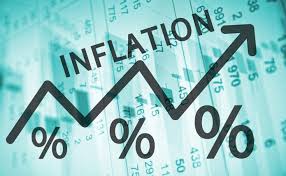The International Monetary Fund (IMF) has lowered Ghana’s average inflation forecast for 2023 to 42.2% from the earlier 45.4%.
It is also forecasting an end-year inflation of 31.3%
According to its 2023 World Economic Outlook (WEO), this will however be among the highest in Sub-Saharan Africa.
In 2022, Ghana’s average inflation was estimated at 31.9% whilst the end-of-year inflation stood at 54.1%
The report stated that the near-term inflation expectations remain elevated and above target, as inflation rates may contribute to more persistent wage and price pressures.
This would complicate the task of monetary policy in restoring price stability.
It added that the ample stock of excess household savings in some economies could slow the effects of monetary policy tightening on inflation.
Continuing, the WEO said “Financial markets have adjusted upward their expectations in regard to monetary policy tightening in recent months, but new upside inflation surprises would force a monetary policy reassessment and could trigger a sudden rise in interest rate expectations and falling asset prices—as happened in March [2023]. Movements such as these could further tighten financial conditions and stress banks and nonbank financial institutions whose balance sheets remain vulnerable to interest rate risk, especially those highly exposed to commercial real estate. Contagion effects are possible”.
“A flight to safety, with an attendant appreciation of reserve currencies, would trigger negative ripple effects for global trade and growth and raise inflation in emerging market and developing economies, especially those highly dependent on imports of food and fuel”, it added.
Ghana’s inflation slowdown in August 2023
Ghana’s inflation slowed down in two months to 40.1 percent in August following an easing in food inflation.
According to data from the Ghana Statistical Service, Food inflation witnessed a decrease to 51.9% in August 2023, from the 55.0% the previous month.
Non-Food Inflation also dropped by 2.9% to 30.9% in August 2023.
For the first time in the year, inflation for imported products recorded a rate lower than locally produced items. Whilst inflation for for locally produced items was 42.4%, inflation for imported items was 36.2%.
Latest Stories
-
Bawumia dominates but NDC supporters back Ken Agyapong in NPP race – Survey
3 minutes -
Open Letter to the President: Galamsey is dead; what we face now is environmental terrorism, crash it now
6 minutes -
Inaki Williams defends brother Nico after fans erase image from mural amid Barcelona transfer rumours
15 minutes -
Next Joy Business Economic Forum comes off on June 25, 2025
36 minutes -
Scars of Hooliganism: Club officials know their hooligans – Eric Alagidede
48 minutes -
Cybersecurity must be core to financial governance – BoG First Deputy Governor
1 hour -
Scars of Hooliganism: Violence drives away sponsors for the league – Kwesi Nyantakyi
1 hour -
Kumasi Airport City project takes off – Asantehene calls for policies to attract local private capital
1 hour -
Borderless Africa key to SME growth and economic independence – Prof Evans Gyasi
1 hour -
Scars of Hooliganism: Identifying hooligans in big crowd is challenging – Ghana Police
1 hour -
Trade Growth Network launched to empower Ghanaian SMEs and promote intra-African trade
1 hour -
‘We could have scored seven’ – Black Queens coach happy with friendly win over Malawi
1 hour -
Rebecca Ekpe shares vision as she targets GJA Vice President position
2 hours -
Ghana stun Uganda in opening game of 2025 Rugby Africa Men’s 7s in Mauritius
2 hours -
Declaring state of emergency over illegal mining premature – Mustapha Gbande
2 hours

